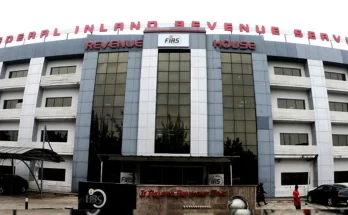Nigeria’s Top Corporates Remit N2.55 Trillion CIT in 9 Months. Nigeria’s largest listed companies, popularly known as SWOOTs (Stocks Worth Over One Trillion Naira), have collectively paid N2.55 trillion in Company Income Tax (CIT) in the first nine months of 2025.
This figure represents 92.7% of the Federal Government’s total CIT target of N2.75 trillion for 2025, according to new market data reviewed by Africa Tax Review.
The performance marks the strongest nine-month CIT collection from top corporates in Nigeria’s history, and reflects a 63.74% rise compared to the N1.56 trillion remitted in the same period in 2024.
Officials and analysts say the surge demonstrates how heavily the government now relies on Nigeria’s most capitalised companies to drive its non-oil revenue targets.
Non-Oil Revenue Strategy Strengthened
The remarkable performance of the SWOOTs has helped anchor the government’s expanded non-oil revenue projections.
For 2025, the FG expects N5.71 trillion in non-oil revenue—up significantly from N3.52 trillion in 2024.
However, the published CIT figures do not yet include expected dividend contributions from state-owned enterprises such as:
- Bank of Industry (BOI)
- Development Bank of Nigeria (DBN)
- Nigeria LNG (NLNG)
These additional inflows could push non-oil revenue beyond initial projections.
Banks and Energy Companies Dominate CIT Remittances
The strongest tax contributions came from banks and upstream energy companies, buoyed by improved interest margins and better crude output.
Top CIT Contributors (YoY Growth):
- Seplat Energy – N469.33bn (+389.51%)
- Presco Plc – N32.62bn (+314.59%)
- GTCO – N247.05bn (+197.11%)
- Access Holdings – N165.44bn (+188.68%)
- UBA – N167.14bn (+63.40%)
- Aradel Holdings – N39.99bn (+159.93%)
While these sectors outperformed, other industries struggled.
See More: Kenya to Tighten Validation of Income Tax Returns From 2026
Import-Heavy Sectors Show Strain
Companies heavily exposed to foreign currency pressures reported sharp drops in their CIT filings:
- MTN Nigeria – N21.55bn (−82.98%)
- Dangote Cement – N115.39bn (−10.37%)
Analysts warn that persistent FX volatility, weak consumer demand and high operating costs could threaten full-year momentum.
Government’s Aggressive CIT Targets
The government’s CIT target for 2025—N2.75 trillion—is nearly double the N1.47 trillion projection for 2024.
Tax analysts point out that the N2.55 trillion paid by just 22 companies highlights the enormous potential available if Nigeria expands compliance across the wider corporate ecosystem.
With over 1,000 viable companies operating outside the NGX, the government could grow CIT collections to N4 trillion and beyond if more firms are brought into the tax net.
Experts Emphasise the Need for Stronger Compliance
Tax professional and convener of Blakey’s National Tax Conference, Mr. Blakey Ijezie, said the 2026 tax reforms are intended to correct long-standing gaps in tax administration.
Key provisions include:
- Unified tax administration framework
- Mandatory TIN for all taxable entities
- Inclusion of digital assets and informal income
- 4% Development Levy on corporate profits
- New Economic Development Tax Incentive
- Establishment of a Tax Ombuds Office
According to Ijezie:
“If 22 companies alone can remit N2.55 trillion in nine months, it raises critical questions about compliance across thousands of other businesses. The revenue potential is far greater than what we see today.”
Analysts Warn Against Over-Reliance on SWOOTs
Capital market expert Dr. David Walker Ogogo cautioned that depending heavily on a small pool of compliant corporates is risky for long-term fiscal sustainability.
“Nigeria must shift from squeezing already-compliant firms to expanding the base. A narrow tax foundation is not sustainable for a modern economy,” he warned.
Similarly, Mr. Aruna Kebira, CEO of Globalview Capital Ltd, advised that government must support struggling sectors—particularly telecoms, energy-intensive industries, and manufacturers.
“Tax should not be viewed in isolation. Stabilising key industries and preserving jobs should be an equal priority,” he said.
Will SWOOTs Hit the Full-Year Target?
Projections indicate that the SWOOTs may exceed the full-year CIT target if:
- FX conditions stabilise
- Q4 energy output improves
- Financing and energy costs moderate
- Digital tax tracking under Nigeria’s Strategic Revenue Growth Initiative (SRGI) delivers results
SRGI aims to push Nigeria’s tax-to-GDP ratio to 15% by 2025 and 18% by 2026, with automated enforcement expected to boost accuracy and compliance.
Conclusion: Strong but Narrow Foundation
While the record-breaking N2.55 trillion CIT payment underscores the resilience of Nigeria’s biggest corporations, experts warn that without a rapid expansion of tax compliance, the country risks building revenue growth on a “strong but narrow base.”
As Ijezie summarised:
“2025 proves the strength of Nigeria’s largest corporates, but true tax reform will only be realised when hundreds of other companies begin contributing proportionately.”




